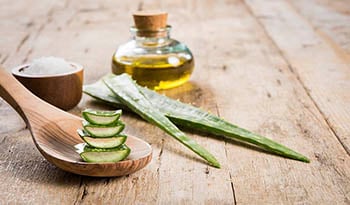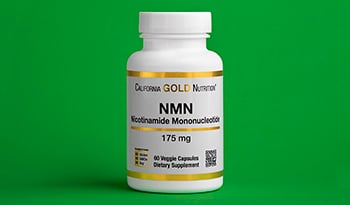Top 8 Natural Remedies for a Cough According to a Doctor

A cough serves as an important way for you to clear things that are irritating your throat and airways.
Causes Of A Cough
Common causes of a cough include:
- Asthma
- Allergies
- Irritation from smoke or pollutants
- Bacterial infections like bronchitis or sinusitis
- Viral infections like the flu or the common cold
While a cough is a response that is beneficial to you, it can still be very annoying when it persists throughout the day. Instead of reaching for an over-the-counter pharmaceutical product to relieve that cough, you may want to consider a more natural option. This article lists some ideas.
Honey
As a time-honored home remedy for a sore throat, why start with honey on a list of cough relievers? With its thick consistency, honey soothingly coats the throat. Since cough occurs as a natural reflex when your throat is irritated, by improving throat irritation, honey can help relieve your cough. Additionally, honey has antioxidant, anti-inflammatory, and anti-bacterial properties, which may contribute to its ability to provide symptom relief.
A 2012 study provided evidence of significantly improved nighttime cough in children who consumed honey. However, remember that children under the age of one should not be given honey. Honey can contain bacteria that cause botulism, a rare but serious illness. Once children have reached age 1, their digestive systems have likely matured enough to process and eliminate the toxin before it can cause harm.
Ginger
Similar to honey, ginger has antioxidant, anti-inflammatory, and antimicrobial properties. It may help relieve a dry or asthmatic cough because of its anti-inflammatory compounds acting to relax the smooth muscles in your airways. You can try combining natural cough relievers by adding honey to a cup of hot ginger tea. For best results, drink the tea while it remains warm.
Demulcent Herbs
The term “demulcent” refers to any substance that you consume that forms a soothing film over an irritated mucous membrane. In the case of a cough, it would be the mucous surfaces of the mouth and throat. Demulcent herbs act similarly to honey in how they provide cough relief. There are several herbs that act in this way. Here are a few that you can try:
- Marshmallow root is available in various forms—tea, dried herb, capsule, and tincture. A research study involving over 800 participants revealed that most reported dry cough improvement within 10 minutes of taking marshmallow root extract. To use dried marshmallow root, you can prepare it in cold water (unlike most other herbs, which are typically prepared in hot water). Add 1 tablespoon of shredded (not powdered), dried root to 2 cups of cold water. Let it steep overnight (or for at least 4 hours) in a refrigerator. Strain the tea before drinking it.
- Licorice root has antiviral, antifungal, and antibacterial properties. For cough relief, you can try it in tea, syrups, or cough drops. Avoid licorice root if you have hypertension, as one potential side effect is high blood pressure.
- Slippery elm bark has been traditionally used in Native American culture to treat cough, diarrhea, and other gastrointestinal issues. Because it can interfere with the absorption of certain drugs, it is important to consult with a health care practitioner prior to using slippery elm if you regularly take medication. To try slippery elm, you can add 1 teaspoon of the dried herb to 1 cup of hot water to make a tea. Allow it to steep for at least 10 minutes prior to drinking it. It is also available in powder and capsule forms.
N-Acetyl Cysteine
NAC (N-acetyl cysteine) is an amino acid that acts to increase your body’s production of glutathione which is a strong antioxidant. NAC is also able to break down mucus in your airways, so it can be effective for reducing the severity and frequency of a wet cough.
Bromelain
Derived from the pineapple plant, bromelain is an enzyme that has anti-inflammatory activity and can work to break up the mucus that contributes to cough symptoms. There are some drug interactions, so you should consult a healthcare professional prior to using bromelain if you are on medication. Be especially cautious if you are on blood thinners, as bromelain can increase the risk of bleeding. The enzyme also increases the absorption of certain antibiotics. Bromelain may also cause sedatives to have a stronger effect.
Thyme
This herb, scientifically known as Thymus vulgaris, has been used for centuries as a remedy for a dry cough. It contains flavonoid compounds that are anti-inflammatory. Research evidence on acute bronchitis patients shows that thyme in various combinations with other herbs is effective for cough relief. In one study, thyme with primrose (Oenothera biennis) and English ivy (Hedera helix) reduced the frequency and severity of the cough. Another study found that cough syrup with thyme and ivy leaves improved cough. Other research demonstrated that a thyme and primrose combination effectively reduced coughing fits in people with acute bronchitis.
For cough relief, you can consume thyme as a pill or as a tincture. Alternatively, you can make an herbal tea by adding 2 teaspoons of dried thyme (not powdered) to 1 cup of hot water. Allow the tea to steep for 10 minutes before straining and drinking.
Essential Oils
There are several essential oils that you can turn to when you’re looking for alternatives to the typical over-the-counter pharmaceutical cough relievers, including:
- Eucalyptus oil: If you’ve tried conventional cough drops or vapor rubs from your local drugstore, you are likely already familiar with the effects of eucalyptus oil (Eucalyptus globulus). It’s often an ingredient in products marketed as cough suppressants. One of the main components of eucalyptus oil is 1,8-cineole, which has anti-inflammatory and antibacterial properties. Inflammation can often cause hypersecretion of mucus, so a wet cough may improve because of 1,8-cineole’s effect. Be careful not to swallow eucalyptus oil because it can cause seizures.
- Rosemary oil: 1,8-cineole is also a component of rosemary (Rosmarinus officinalis), so it has antibacterial and anti-inflammatory effects.
- Nutmeg oil: Scientifically known as Myristica fragrans, nutmeg has antibacterial, antioxidant, and anti-inflammatory properties, owing in part to the camphene it contains. If inhaled, camphene has also been shown to decrease fluid in the respiratory tract. So it may help relieve congestion, which can cause coughing. Note that a rash or burn can result from using nutmeg oil on your skin. Thus, it’s important to dilute it appropriately and test it on a small patch of skin prior to applying it more extensively. If it is ingested in high concentration, hallucinations or even a coma could occur.
- Bergamot oil: Bergamot (Citrus bergamia) is a citrus fruit, and its essential oil is made from the rind. Camphene is a component of bergamot, so the oil has antibacterial, antioxidant, and anti-inflammatory qualities. Take care not to apply bergamot oil in high concentrations on your skin prior to sun exposure, as burning can occur.
- Peppermint oil: Peppermint is a hybrid plant, a cross between watermint and spearmint. Scientifically named Mentha piperita, peppermint contains menthol, which can provide soothing relief for your throat. Cough often occurs as a protective reflex to any irritation of your airway. Researchers have found that inhaling menthol dampens the cough response when the airway gets irritated. Be cautious if using peppermint oil on your skin, as a rash can occur.
Essential oils can be used in a variety of ways. In their pure form, essential oils are very potent, and you will generally need to dilute them prior to use. There are a few methods of dilution you can try:
- Mix a few drops with a carrier oil (like olive or sweet almond) to directly apply it to the skin.
- For inhalation, you can use a diffuser, humidifier, or a spray bottle to get it into the air.
- Mix a few drops with a carrier oil and then add it to a body product like a chest rub.
- Add a few drops to a bowl of hot water to breathe in oil-infused steam. You can drape a towel over your head to keep the steam fairly contained. However, be careful not to get your face too close to the bowl—otherwise, you may burn yourself.
Because of the potency of essential oils, caution must be taken when considering their use in children. Compared to an adult, a child has skin that is thinner and a liver that is less mature. So, certain oils are not considered safe for children. Of the essential oils mentioned here for cough relief, rosemary, eucalyptus, and peppermint should not be given to a child.
Saltwater Gargle
A simple home remedy you can try is to gargle with a mixture of salt and water. The saltwater draws moisture away from the irritated area of your throat, which reduces swelling. Simply stir 1/2 teaspoon of salt into 8 ounces of water and gargle with that mixture.
When to Seek More Help
While using a natural home remedy can put a stop to your cough, it may not do anything to treat an underlying medical condition. So it’s important that you address the actual cause of your cough as well.
Certainly, consult your healthcare provider if your cough is worsening, persists for several weeks, causes vocal hoarseness, or keeps you up at night. You should also seek professional advice if your cough is associated with any of the following symptoms:
- Wheezing or shortness of breath
- Chest pain or pressure
- Coughing up phlegm or blood
- Fever or headaches.
References:
- Cohen HA, Rozen J, Kristal H, Laks Y, Berkovitch M, Uziel Y, Kozer E, Pomeranz A, Efrat H. Effect of honey on nocturnal cough and sleep quality: a double-blind, randomized, placebo-controlled study. Pediatrics. 2012 Sep;130(3):465-71.
- Samarghandian S, Farkhondeh T, Samini F. Honey and Health: A Review of Recent Clinical Research. Pharmacognosy Res. 2017;9(2):121-127.
- Townsend EA, Siviski ME, Zhang Y, Xu C, Hoonjan B, Emala CW. Effects of ginger and its constituents on airway smooth muscle relaxation and calcium regulation. Am J Respir Cell Mol Biol. 2013;48(2):157-163.
- Fink C, Schmidt M, Kraft K: Marshmallow Root Extract for the Treatment of Irritative Cough: Two Surveys on Users' View on Effectiveness and Tolerability. Complement Med Res 2018;25:299-305.
- Wang L, Yang R, Yuan B, Liu Y, Liu C. The antiviral and antimicrobial activities of licorice, a widely-used Chinese herb. Acta Pharm Sin B. 2015;5(4):310-315.
- Sadowska AM. N-Acetylcysteine mucolysis in the management of chronic obstructive pulmonary disease. Ther Adv Respir Dis. 2012 Jun;6(3):127-35.
- Cazzola M, Calzetta L, Page C, Jardim J, Chuchalin AG, Rogliani P, Matera MG. Influence of N-acetylcysteine on chronic bronchitis or COPD exacerbations: a meta-analysis. Eur Respir Rev. 2015 Sep;24(137):451-61.
- Wagner L, Cramer H, Klose P, et al. Herbal Medicine for Cough: a Systematic Review and Meta-Analysis. Forsch Komplementmed. 2015;22(6):359-368.
- Kemmerich B, Eberhardt R, Stammer H. Efficacy and tolerability of a fluid extract combination of thyme herb and ivy leaves and matched placebo in adults suffering from acute bronchitis with productive cough. A prospective, double-blind, placebo-controlled clinical trial. Arzneimittelforschung. 2006;56(9):652-60.
- Kemmerich B. Evaluation of efficacy and tolerability of a fixed combination of dry extracts of thyme herb and primrose root in adults suffering from acute bronchitis with productive cough. A prospective, double-blind, placebo-controlled multicentre clinical trial. Arzneimittelforschung. 2007;57(9):607-15.
- Mączka W, Duda-Madej A, Górny A, Grabarczyk M, Wińska K. Can Eucalyptol Replace Antibiotics? Molecules. 2021; 26(16):4933.
- Boyd, E., & Sheppard, P. (1970). Nutmeg Oil and Camphene as Inhaled Expectorants. Archives of Otolaryngology, 92(4), 372-378.
- Ueno-Iio T, Shibakura M, Yokota K, Aoe M, Hyoda T, Shinohata R, Kanehiro A, Tanimoto M, Kataoka M. Lavender essential oil inhalation suppresses allergic airway inflammation and mucous cell hyperplasia in a murine model of asthma. Life Sci. 2014 Jul 17;108(2):109-15.
- Wise PM, Breslin PA, Dalton P. Sweet taste and menthol increase cough reflex thresholds. Pulm Pharmacol Ther. 2012;25(3):236-241.
- Ramalingam S, Graham C, Dove J, Morrice L, Sheikh A. A pilot, open labelled, randomised controlled trial of hypertonic saline nasal irrigation and gargling for the common cold. Sci Rep. 2019;9(1):1015.
DISCLAIMER:This Wellness Hub does not intend to provide diagnosis...

















































































 Table of Contents
Table of Contents














